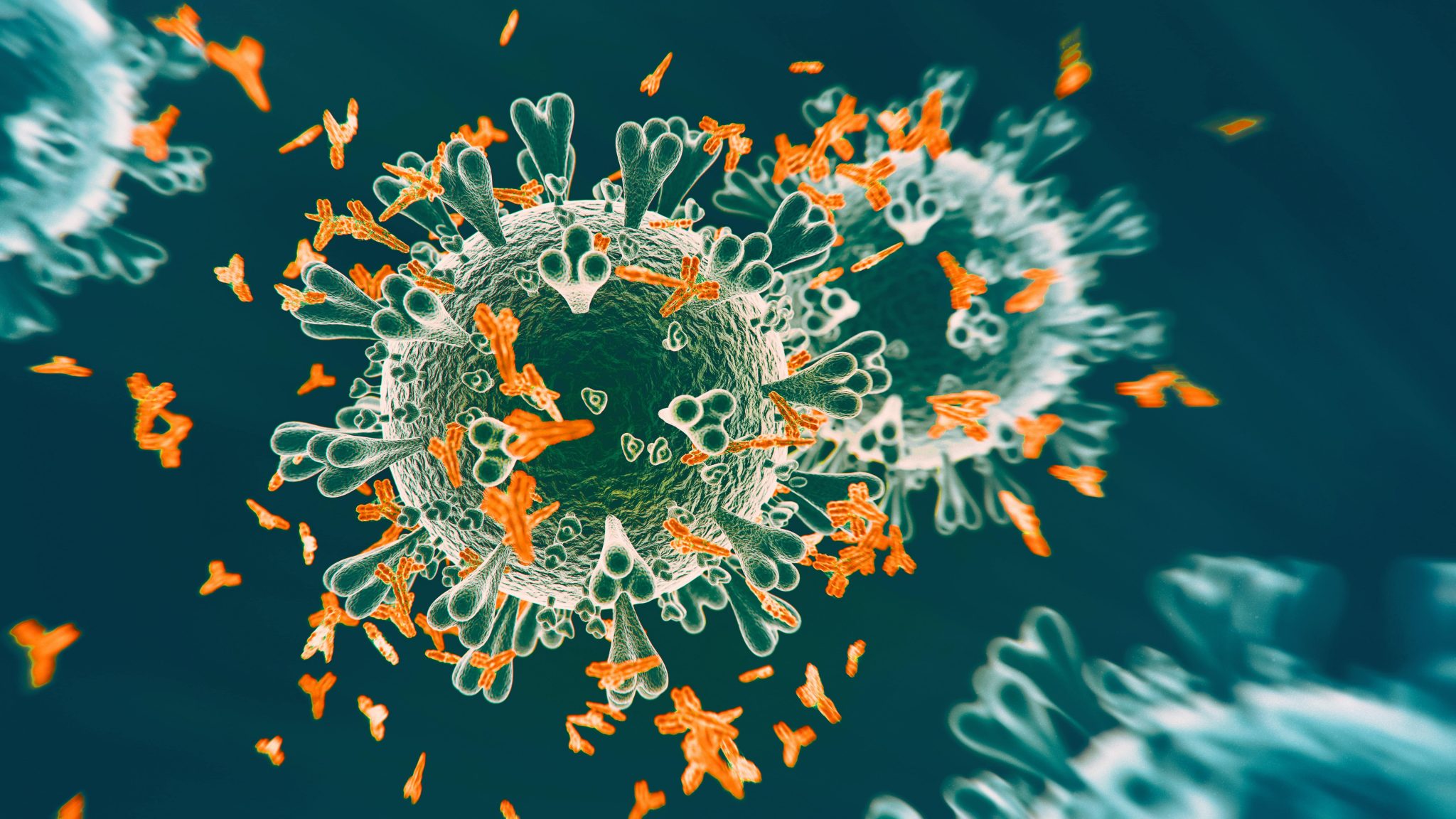Would a global vaccine IP waiver stifle future biopharma breakthroughs?
Published on 22nd April 2021
Pressure for an IP rights waiver to fight the pandemic threatens vaccine companies' ability to develop and protect their trade secrets and the reward and incentive to innovate

The People's Vaccine Alliance, endorsed by 170 Nobel Laureates and former heads of state, in an open letter (14 April 2021) has called on President Biden to support a temporary waiver of the World Trade Organization (WTO) rules on intellectual property (IP) during the Covid-19 pandemic.
The waiver request is, according to the People's Vaccine Alliance, "…a vital and necessary step to bringing an end to this pandemic. It must be combined with ensuring vaccine know-how and technology is shared openly…This will save lives and advance us towards global herd immunity".
Gordon Brown, the former British prime minister, brought his rhetoric to bear in The Guardian stating: "Home to the major vaccine developers, the G7 countries are in the best position to agree to transfer vaccine technology to low-income countries. The temporary waiver of patents proposed by the People’s Vaccine Alliance will help Africa create its own manufacturing facilities and end months of vaccine nationalism."
But is this correct? Is there any evidence that patents or IP rights have been a factor in the lack of vaccine availability and production in low income countries? And would waiving the rights of IP owners remedy the situation and achieve the aims of the People's Vaccine Alliance?
TRIPS waiver
First proposed to the WTO by India and South Africa in October 2020, the request to the WTO would take the form of a waiver of the obligations of the TRIPS (Trade-Related Aspects of Intellectual Property Rights) Agreement and would cover "Section 1 on copyright and related rights, Section 4 on industrial designs, Section 5 on patents and Section 7 on the protection of undisclosed information". The waiver would "last for a specific number of years, to be agreed by the General Council, and until widespread vaccination is in place globally and the majority of the world's population is immune. Members would review the waiver annually until termination."
While the focus of the recent news stories has been concentrated on patent rights, the proposed waiver goes much further. It covers all IP rights, including trade secrets, relevant to the protection of the vaccine and the optimal manufacturing processes for producing it in a safe and efficacious way at industrial scale.
The patent bargain
So what of patents? The patent bargain – the disclosure of your invention to the world for a time-limited monopoly – has been available in many countries for many hundreds of years (the Venetian patent system started granting patents in 1474). And this is a crucial point: the technical advance taught by a patent is available to the world already. How the invention works must be described in sufficient detail for it to be replicated. This is an essential basis for grant and failure to do so makes the patent vulnerable to being revoked entirely. In addition, the function of the various national and international patent registers is to make patents available to the world at large.
Once granted, there is a risk that developers of vaccine technology will enforce their patent rights against infringers using it without permission. In normal circumstances, this would be the case. The legal systems of all technologically sophisticated countries are careful to recognise valid patent rights, as with all legal property rights. Not to do so would create uncertainty and discourage investment in research and development.
Overriding rights
Since patents are state-granted monopolies, the state is usually very careful to reserve the right to override the patentee's property rights in extraordinary circumstances. As a result, most national patent systems have a mechanism to grant compulsory licences (or Crown Use in the UK) where the invention can be made available more broadly if public policy or public health demands it.
Why then do the countries requesting access to vaccine patents not simply invoke these provisions? François Hollande, former president of France, recently said: "The extreme inequality in access to vaccines around the world creates an unbearable political and moral situation… If the United States supports the lifting of patents, Europe will have to take its responsibilities." Was he overlooking that the French state has chosen not to exercise its pre-existing rights to grant a licence to patented vaccine technology in France in the interests of public health (see Articles L.613-16 and L.613-17 of the French Intellectual Property Code)?
The truth is that European countries, and most others, are already in a position to override the patent rights they have granted but seem to prefer the US to go first before they are prepared to follow suit. That is probably because such action by a single country alone is likely to be interpreted by industry (i.e. the owners of the relevant IP rights) as a very drastic measure.
What of the other traditional IP rights mentioned in the waiver request? Copyright and industrial designs are unlikely to feature prominently in the fundamental IP protecting vaccine technology and manufacturing.
Secrets are secret
Finally then, trade secrets? Trade secrets are likely to be extremely important in biotech manufacturing. And the value of a trade secret, self-evidently, only exists while the secret is secret. Once the information becomes common knowledge, accessible to all, it has no further proprietary value. Therefore, the proposed waiver is likely to impact this area the most seriously.
Enormous investments will have been made in developing and keeping secret the optimum manufacturing processes for each of the successful Covid-19 vaccines. Robust legal safeguards for trade secret theft, in some countries involving criminal sanctions, are the norm. Imagine a scenario where the recipe of Coca-Cola was forcibly disclosed to the world in a time of an urgent soft-drinks drought. Would it be possible to police the dissemination and ring-fencing of the recipe such that, when the time of need was declared over, Coca-Cola would be able to return to its previous business model of strenuously guarding its proprietary recipe? And, given the breadth of technology involved in the approved vaccines (including the novel mRNA technology of Pfizer-BioNTech alongside more established vaccine production technology for Oxford-AstraZeneca), how in practice are the owners of trade secrets to identify what it is that is needed and go about disclosing, and to whom, and under what conditions?
Good intentions, poor reasoning?
Bringing the pandemic to an end as quickly as possible will clearly have enormously significant health and economic benefits, especially in developing countries. It is hard to disagree with the good intentions of the People's Vaccine Alliance. It will take strength of character for President Biden to question their evidence and reasoning, and to ask whether what they are calling for is really the correct solution. To pick up on Gordon Brown's themes, it is self-evident that helping Africa create its own vaccine manufacturing facilities is a laudable and worthy imperative, (notwithstanding that India is already a world leader in this area); the unpleasant vaccine nationalism of late seems to be an entirely politically generated issue that has nothing to do with scientists or the companies and institutions behind the development of the vaccines.
Nonetheless, it is not at all clear that patents (or IP rights in general) are responsible for creating any of the issues highlighted by the letter. No substantiating evidence seems to have been provided or has otherwise been referenced. An allusion in the WTO document to "several reports about intellectual property rights hindering or potentially hindering timely provisioning of affordable medical products to the patients" turns out to be a news story about 3M's respirator patents for disposable personal protective equipment. This is simply not enough evidence on which to justify the extreme actions that are being called for. Furthermore, there is no analysis of the potential damage that may follow after patent rights are forcibly waived or some companies are obliged to hand over their trade secrets for an indefinite period and to an indefinite number of as yet unidentified recipients.
Osborne Clarke comment
The patent system has always been a compromise between rewarding and incentivising innovation, while balancing the need to ensure a public monopoly does not lead to overly high rents or shortages of supply. But the bigger strategic and policy question must be remembered the harm that may follow a full-scale traverse of the IP rights of the vaccine companies whose fundamental value resides in their ability to develop and protect their IP and trade secrets.
It is sobering to consider that if biopharma companies know that in the future the fruits of their research are likely to be commandeered and their proprietary secret technology forcibly disclosed then, when the next pandemic hits, the world may not be able to turn to so many successful vaccines developed so quickly.




